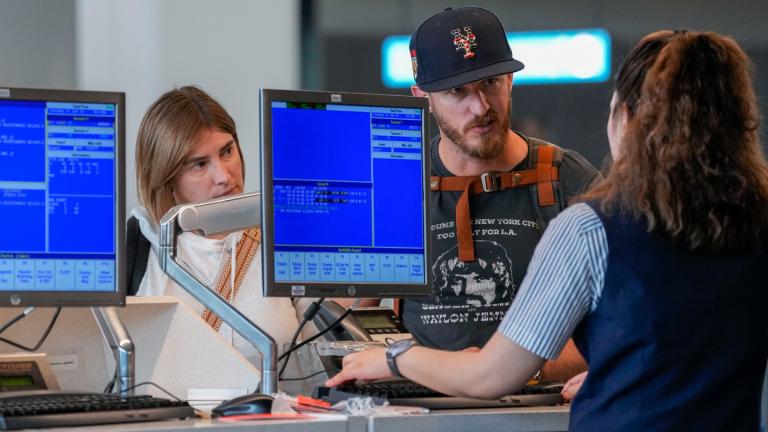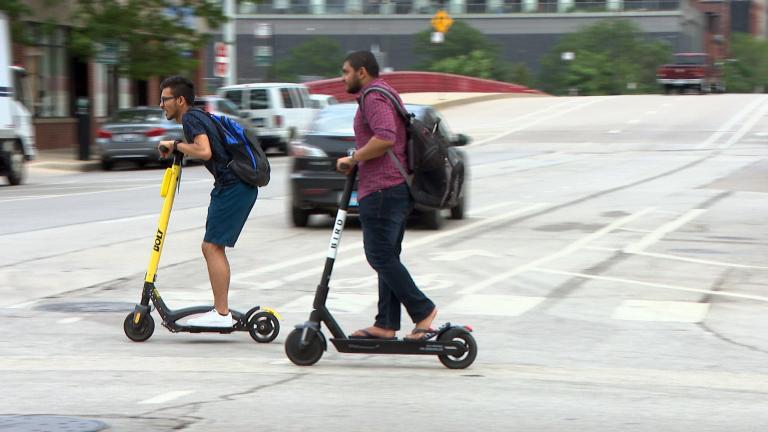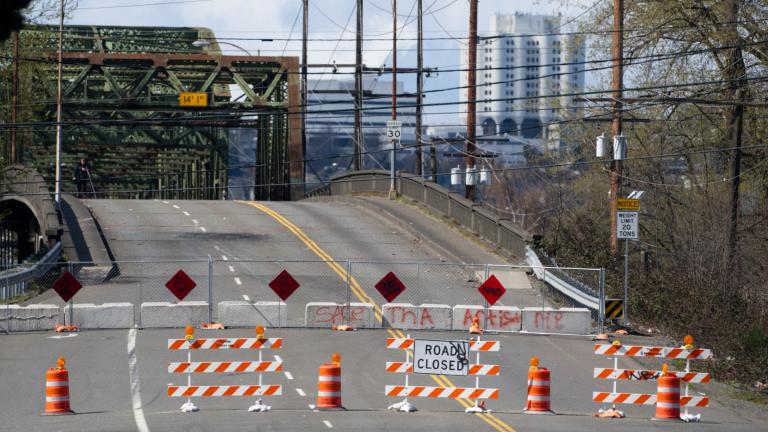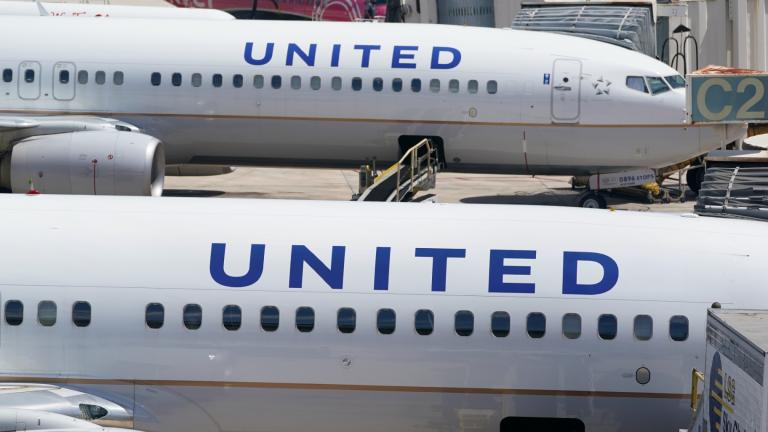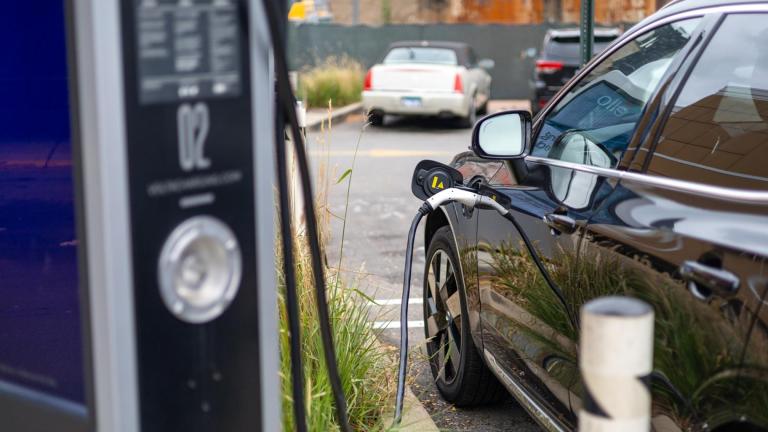Chicago has seen a swift and dangerous increase in carjackings, with more than 1,400 reported in 2020 – including crimes that have targeted ride-share drivers. Those drivers have been facing other pressures in the past year, too, like working in close contact with other people during the pandemic and a huge drop in demand. And amid both those issues, ride-hailing platforms and other app-based companies are gearing up for a fight over whether gig workers should be classified as employees.
Chicago police say there were 218 carjackings in January 2021, nearly three times what the city saw in January 2020. Ride-share drivers are among the recent victims and say it’s top of mind every time they’re on the road.
“You’ve just always got your radar up about who’s around, what the other cars are doing,” said driver Darren Heard.
Driver Steven Everett’s on guard, too. “I’m steady looking in the rearview mirror, and it shouldn’t have to be like that.”
The spike in carjackings also comes amid the pandemic that’s upended the ride-hailing industry along with everything else, with both Heard and Everett doing frequent cleanings, staying masked, and doing their best to prevent COVID-19 from spreading. And like many other front-line workers, drivers are doing a difficult and potentially dangerous job – often with low pay and infrequent tips, according to a new study from the University of Illinois and the Illinois Economic Policy Institute.
“This is really a very difficult form of employment to earn a middle-class income,” said co-author Robert Bruno, a professor of labor and employment relations at the University of Illinois. “Expenses are impactful and the opportunities to generate revenue are actually quite muted.”
The study analyzed publicly available data on 80,000 ride-sharing trips in Chicago in September 2019 and September 2020, and found that in many instances drivers made less than the minimum wage after expenses and taxes.
COVID-19 has also meant fewer ride-share drivers on the road and fewer trips by those still working. The study’s authors say the city could mandate that drivers make the minimum wage after expenses. On the state or even federal level: “classify these drivers as employees, and grant them the full employment rights and access to basic labor protections that all W-2 employees have,” said co-author Frank Manzo, policy director at the Illinois Economic Policy Institute. “That includes things like minimum wage laws, unemployment insurance benefits, (and) workers compensation benefits.”
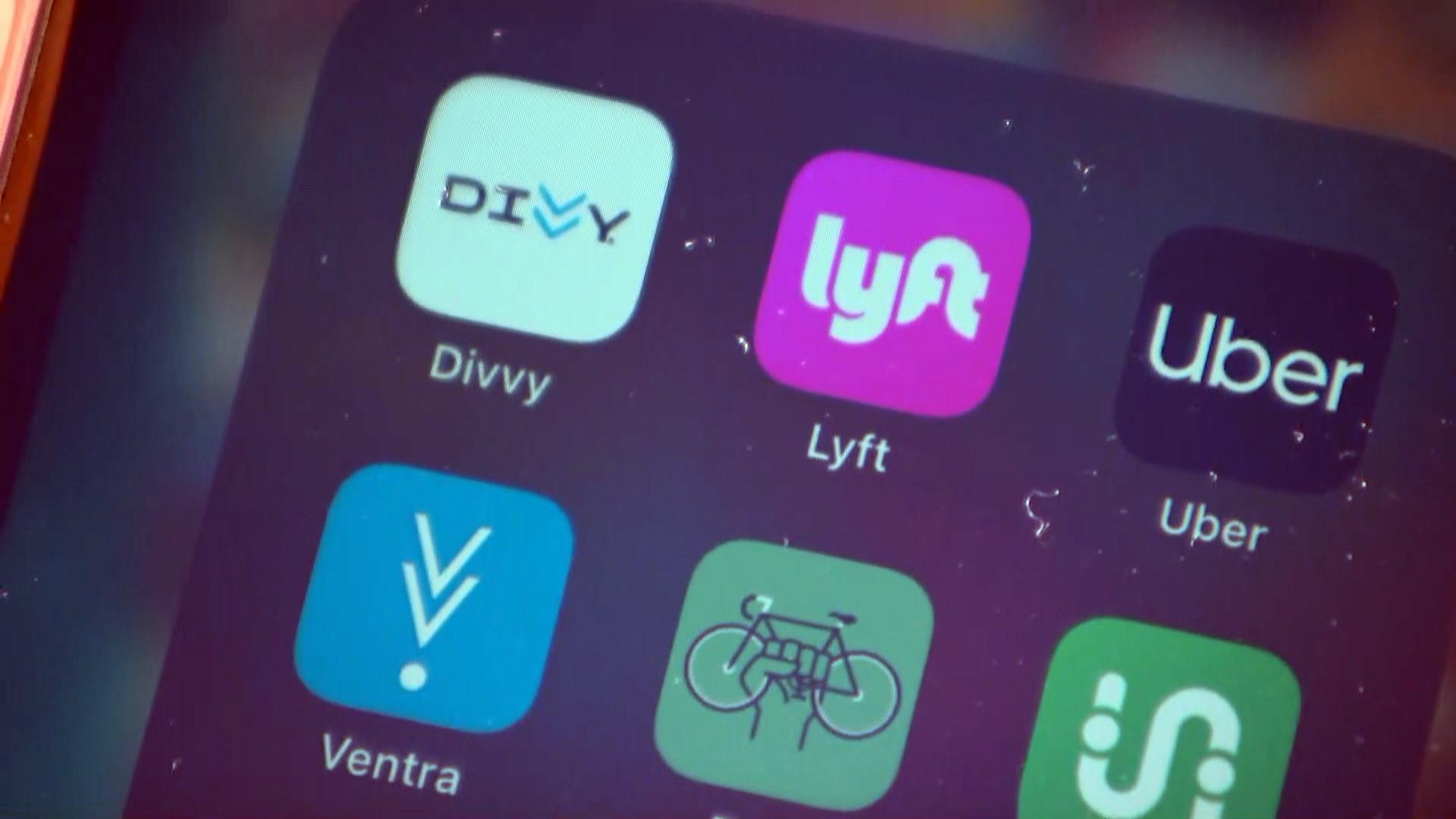 (WTTW News)
(WTTW News)
State lawmakers are working on a bill that would likely do just that. The sponsors hope to introduce it during the current legislative session. Ride-share driver Steven Everett is also an organizer with the Chicago chapter of the Independent Drivers Guild, which helped push for minimum pay and benefits in New York City. The Guild’s not taking a position on the bill until they see it, but Everett says: “we want the gig companies to know that if there is no driver, there is no gig company. There is no Uber. There is no Lyft.”
With legislation on the horizon, ride-share companies are gearing up. An Illinois super PAC funded by Lyft has spent $1.2 million, donating to dozens of nonprofits and supporting political candidates. Drivers Guild organizer Lenny Sanchez expects what he calls a misinformation campaign. “The misinformation is that if this were to happen, that drivers would lose their flexibility and their ability to work when they want. That is completely false,” Sanchez said.
But driver Darren Heard says he’s not misinformed. And while he appreciates what minimum pay and benefits could mean for drivers, he also appreciates the independence that comes with being a contractor. Heard’s involved with the Illinois Coalition for Independent Work, which says it’s a nonprofit funded by Uber, Lyft, Postmates, Instacart and DoorDash.
“Everybody doesn’t get involved in gig economy work because they want to have a retirement account or health care benefits,” Heard said. “Some people need it if they just want to have a tank of gas to fill up their car, or if they’re trying to buy Christmas presents for their family, or if they’re just trying to make a couple extra bucks to invest.”
As lawmakers consider legislation on how employees are classified, Heard thinks they should give gig work a try. “Then they’ll have that valuable experience to take to the decision-making table to say, ‘hey I’ve done this before, I see why these gig economy workers really want that freedom of choice,’” Heard said.
The authors of the ride-sharing study say flexibility doesn’t have to be at risk – and that if there’s continued spread of gig workers classified as contractors: “we will continue to undermine the wage earning capacity of those individuals,” Bruno said. “We will continue to shift more of the burden onto the backs of workers and challenge legitimate employers paying good wages and paying into social insurance funds.”
Drivers Guild organizers agree it’s not an either or choice. And they say a seat at the table through collective bargaining would let them better advocate for drivers, like pushing companies to verify passengers’ identities and requiring them to post a photo. Regardless of what comes out of Springfield or City Council, the spike in carjacking and driver safety is the group’s top priority.
“We want to be able to earn an honest good living and be able to come home from our jobs safely,” Sanchez said. “It’s just really dire to be a gig worker and a driver full time nowadays, and even prior to the pandemic.”
The Independent Drivers Guild has a petition calling on gig work companies to work with drivers to address the spike in carjackings. Find out more here.

